OneFootball
Dan Burke·18 February 2020
Punishing Manchester City will not make football's problems go away

OneFootball
Dan Burke·18 February 2020

The news came like a bolt from the blue on Friday evening.
Following a long-running investigation into alleged breaches of Financial Fair Play regulations, Manchester City are to be banned from European competition for two years and hit with a €30m fine.
Ouch.
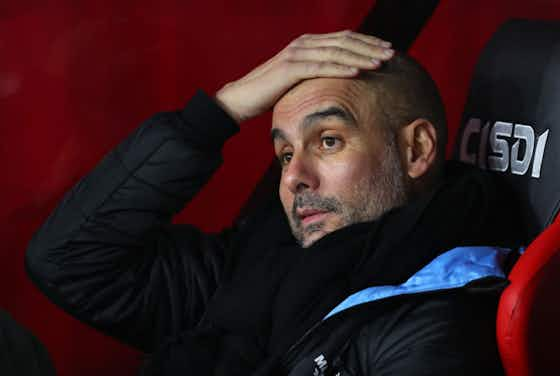
If City have broken the rules they should be punished.
It’s as simple as that and it will be interesting to see whether the Court of Arbitration for Sport agrees that the punishment handed down by Uefa fits the crime.
But the journalist Martin Samuel had it right this weekend when he said: “Sometimes you can be on the wrong side of the rules and the right side of the argument.”
The trouble is, nobody seems particularly interested in having “the argument” at the moment.
That’s partly because “the argument” is complex and boring.
Gone are the days when you could just enjoy the simple thrill of 22 people kicking a ball around. Nowadays you have to be an expert in economics with a PhD in accounting just to keep up with it all.

But the main reason many people don’t want to have “the argument” is because it would force them to confront some difficult truths about the club they support and the game we all love.
So it’s easier for everyone if City just take the heat on this one, and the rest of us can go on living happily ever after.
And what’s more, we no longer have to feel envious about any of the successes City have enjoyed in recent years, because Uefa’s ruling means those league titles and cups will always have an asterisk next to them in the history books.

As Brian Clough tells his Leeds players in The Damned United: “As far as I’m concerned, the first thing you can do for me is to chuck all your medals and all your caps and all your pots and all your pans into the biggest fucking dustbin you can find, because you’ve never won any of them fairly. You’ve done it all by bloody cheating.”
That “c” word has been bandied around a lot in recent days and whether you think it’s a fair accusation or not is entirely up to you.
Your concept of fairness is important here though, because fairness just so happens to be at the very epicentre of “the argument” surrounding Financial Fair Play.
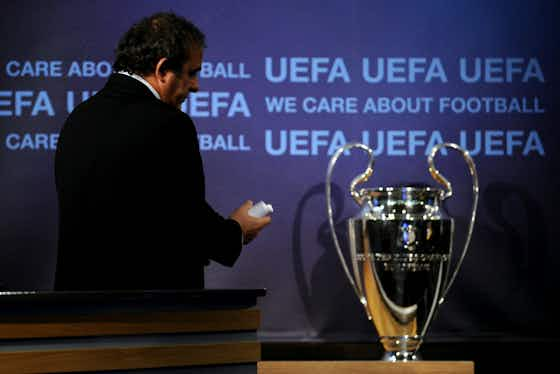
FFP was introduced in 2011 with the basic aim of preventing clubs spending more than they earned and ending up in financial turmoil, as the likes of Leeds and Portsmouth had done in previous years.
Living within your means is a simple economic principle everyone can understand and the logic behind FFP is sound enough, on the surface at least.
But FFP wasn’t created in a vacuum and at the time it was introduced, football’s ecosystem was already pretty well established.
The English game was dominated by the Big Four – Manchester United, Arsenal, Chelsea and Liverpool – who between them had won 18 of the 19 Premier League titles on offer between 1992 and 2011.
The Champions League had a tendency to change hands more often but in the 10 years prior to 2011, Barcelona had won it three times and AC Milan twice, with Manchester United, Liverpool, Real Madrid, Inter and Porto all lifting the trophy once each.

With the exception of the odd outlier like Porto or Leicester, football’s biggest prizes almost always go to the wealthiest clubs and it’s easy to understand why those at the top of the food chain didn’t want any nouveau riche interlopers crashing their party.
And that’s why FFP was great for football’s big revenue generators but not so great for anyone else with eyes on a piece of the pie.
Only being able to spend what you earn is fine if you earn a lot of money already, but it can be prohibitive to on-field success if you’re a club who only turns a small profit.
And if you’re not successful on the pitch, you won’t make much money. Classic Catch 22.
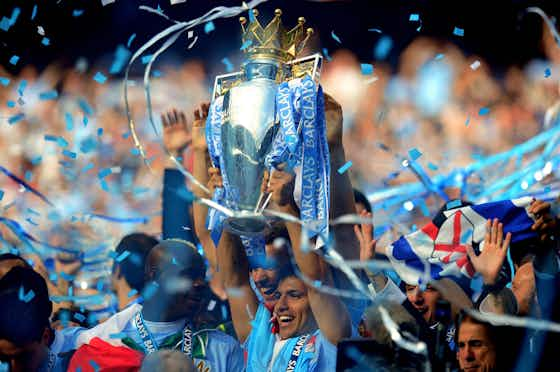
The other problem was, FFP was introduced too late in the day to stop Manchester City anyway.
With their Abu Dhabi cash injection, the club from east Manchester had already entered the castle by the time the drawbridge was pulled up and funnily enough, it was they who won the first Premier League title of the FFP era.
But FFP at least means no other club will be able to “do a City” anytime soon. Look at Everton, whose majority shareholder Farhad Moshiri has reportedly invested as much as £500m in the club since 2016.
It hasn’t got them very far though because thanks to FFP, football’s glass ceiling has never been thicker.
And rightly or wrongly, Uefa’s recent ruling feels a lot like an attempt to lower the drawbridge and throw City out again.
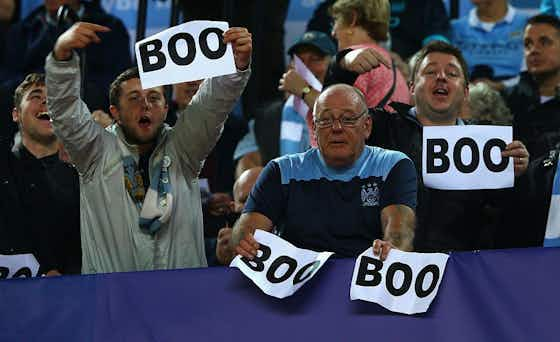
But City agreed to the FFP rules and then allegedly went and broke them anyway.
We know this because an organisation called Football Leaks hacked into the club’s e-mails last year and revealed – via German magazine Der Spiegel – how the reigning Premier League champions had supposedly duped Uefa by over-inflating their Etihad sponsorship deal while also deploying various other elaborate schemes aimed at circumventing FFP regulations.
It makes you wonder how much dirt you might dig up if you hacked into every club’s e-mails. This kind of thing could be going on everywhere all the time and unless everyone’s dealings are subjected to the same scrutiny, we will never truly know who is dodgy and who isn’t.
After all, the absence of evidence is not the evidence of absence.
For their part, City have always denied any wrongdoing and the statement released in the wake of their Champions League ban suggested they will fight until the bitter end to clear their name.
But even if they are guilty, “cheating” is a very loaded word here.
Is fudging the numbers really akin to taking Performance Enhancing Drugs? Or match fixing? Or even Diego Maradona’s Hand of God?
What they’re alleged to have done may well have given them an advantage over their competitors, but it’s an advantage so marginal even VAR wouldn’t spot it.
Especially when you consider all the money they’ve wasted on rubbish over the years. The £25m on Wilfried Bony or the £42m on Eliaquim Mangala are just a couple of examples of money being no guarantee of anything.
The correlation between financial might and sporting success is not always as strong as some would have you believe. If it was, the richest club on the planet would surely have won the Champions League by now.
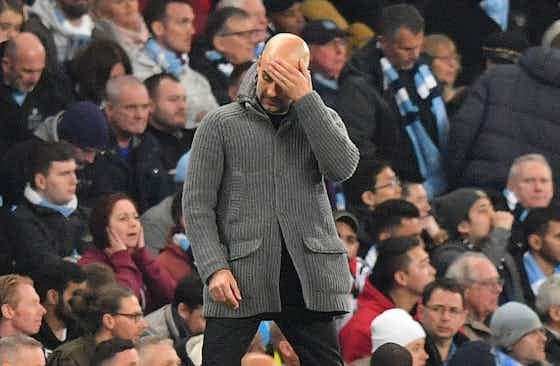
But there is a correlation of course, and it would be ridiculous to suggest that City’s unromantic rags to riches tale would have been possible at all without the sovereign wealth of a country with an extremely concerning human rights record.
Whatever City have won in the past and whatever they win in the future, allegations of “sportswashing” in Abu Dhabi will always cast a huge shadow over their celebrations, and rightly so.
The irony, however, is that someone like Sheikh Mansour bin Zayed Al Nahyan would never have entered the football marketplace had other clubs not already created a climate designed precisely to attract money like his.
Sheikh Mansour was merely standing on the shoulders of the G-14 – a group of 14 clubs who seemed to spend most of the early 2000s threatening to form a European Super League if Uefa and Fifa didn’t keep them sweet.
And on the domestic front, there are many who believe the formation of the Premier League back in 1992 was the day the music died.
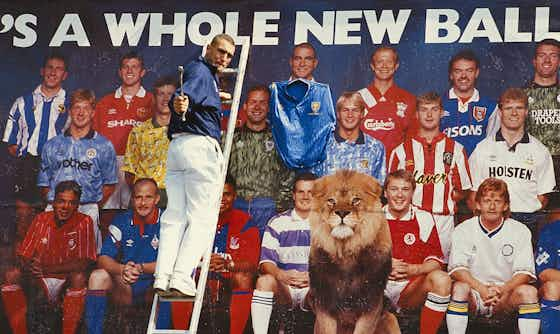
Regardless, there absolutely should be tight controls on finances in football and the governing bodies can and should do more to prevent money of dubious origin flooding into the game.
But there surely must be a fairer system than Financial Fair Play?
What about a salary cap? And rather than the current ‘you can only spend what you earn’ model, what if all clubs were subjected to the exact same budgetary restrictions?
Imagine every club was only allowed to spend, say, €150m net on transfer fees per season? It wouldn’t hinder the rich clubs from going out and buying good players but it would pump the brakes on an increasingly crazy transfer market and slowly start to close the gulf between the haves and the have nots.
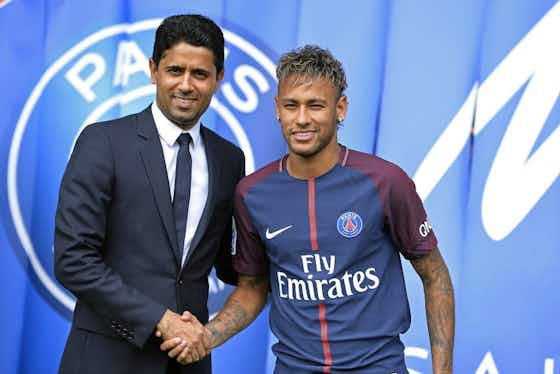
There should also be tighter restrictions on malevolent owners saddling clubs with debt, a more even distribution of television and ticket money, and an urgent acknowledgment that the price of being a football fan is growing exponentially year on year.
A better world is out there but to get it we will need football’s power brokers – including City – to decide they really do want a fairer society for all. Right now, it doesn’t seem like that is the case.
In the meantime, we await the conclusion of City’s appeal to the Court of Arbitration for Sport with bated breath.
If they’re found guilty for a second time then by all means, throw the book at them. Ban them from the Champions League, strip them of their titles and relegate them to the fourth division if it will make you feel better.
But let’s not try to pin all of football’s ills on one club and act like the game’s problems will all just magically disappear.
For football’s sake, it’s about time we had “the argument”.






























































